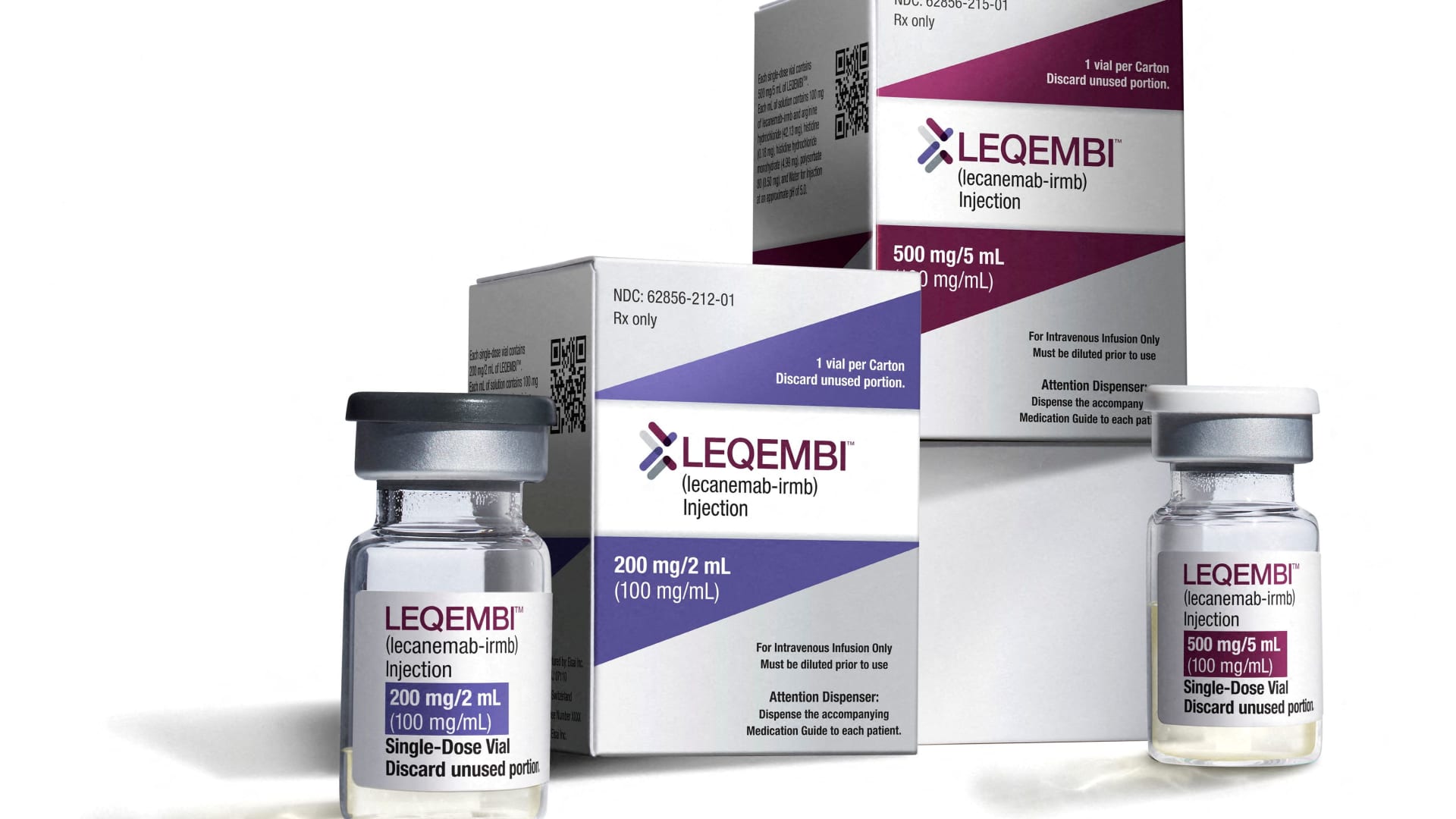FDA advisors to weigh whether Alzheimer’s drug Leqembi should receive full approval
[The stream is scheduled to begin at 10 a.m. ET. Please refresh the page if you don’t see a player above at that time.]
A panel of independent advisors to the Food and Drug Administration is meeting Friday to make a recommendation on whether the Alzheimer’s drug Leqembi, made by Eisai and Biogen, should receive full approval.
The FDA is not required to follow the advisors’ recommendation, but a panel vote in favor of Leqembi would help pave the way for the treatment’s approval this summer. The FDA is expected to make a final decision on Leqembi on July 6.
It’s the second Alzheimer’s treatment from Eisai and Biogen to come under FDA review, after the controversial approval of the drug Aduhelm in the summer of 2021.
The drug regulator granted expedited approval to Aduhelm, developed by the two companies, despite 10 out of 11 advisory committee members concluding that the treatment did not demonstrate a clinical benefit. A congressional investigation subsequently found that the approval of Aduhelm was “rife with irregularities.”
Leqembi is technically already available on the U.S. market after receiving fast-track approval in January, but very few seniors can access the expensive treatment because Medicare is restricting coverage to only people who are participating in clinical trials. There are no clinical trials underway.
As consequence, most seniors can only access Leqembi if they can afford to pay for the drug out of pocket. Leqembi has a list price of $26,500 per year.
Medicare has promised to broadly cover Leqembi on the same day the FDA fully approves the drug. The Veterans Health Administration is already covering the treatment for veterans. Members of Congress and organizations that lobby on behalf of Alzheimer’s patients are closely watching Friday’s advisory committee meeting.
FDA staff said the clinical trial data submitted by Eisai appeared to confirm the clinical benefit of Leqembi for Alzheimer’s patients, suggesting that the agency is poised to approve the treatment this summer.
Leqembi slowed cognitive decline in early Alzheimer’s patients by 27% in the trial, but the treatment also carries serious risks of brain swelling and bleeding. The antibody is administered twice monthly through intravenous infusion.
The advisory committee is unusually small, with just six voting members.
Dr. Teresa Buracchio, acting head of the FDA’s neuroscience office, said the smaller than usual committee is due to a larger number of experts recusing themselves from Friday’s meeting due to potential conficts of interest.
“While this group is small, it contains the appropriate expertise necessary to have a robust discussion on the topic at issue today,” Buracchio said.
Committee member Dr. David Weisman, for example, is not participating in Friday’s meeting, because he is the principal investigator for Biogen and Eisai clinical trials on Leqembi and another Alzheimer’s treatment called Aduhelm at Abington Neurological Associates.
Acting chair Dr. Robert Alexander was granted a waiver to lead the panel Friday despite holding stocks valued up to $150,000 in companies that compete with Eisai and Biogen. The FDA disclosure did not name the companies.
Alexander is the chief scientific officer of the Alzheimer’s Prevention Initiative at the Banner Alzheimer’s Institute. Banner is conducting an Alzheimer’s clinical trial for a competing firm, and Alexander receives $50,000 to $100,000 in salary per year from funding supporting the trial.
Bryan Marshall, who heads the office that manages the FDA’s advisory committees, asked the agency to grant Alexander a waiver because he has unique expertise that is “invaluable” to Friday’s meeting.
For all the latest health News Click Here

